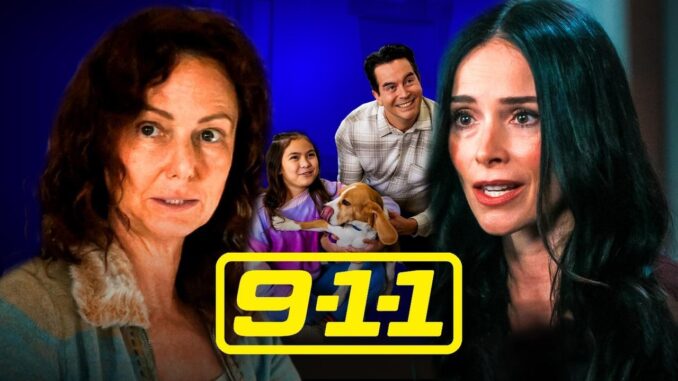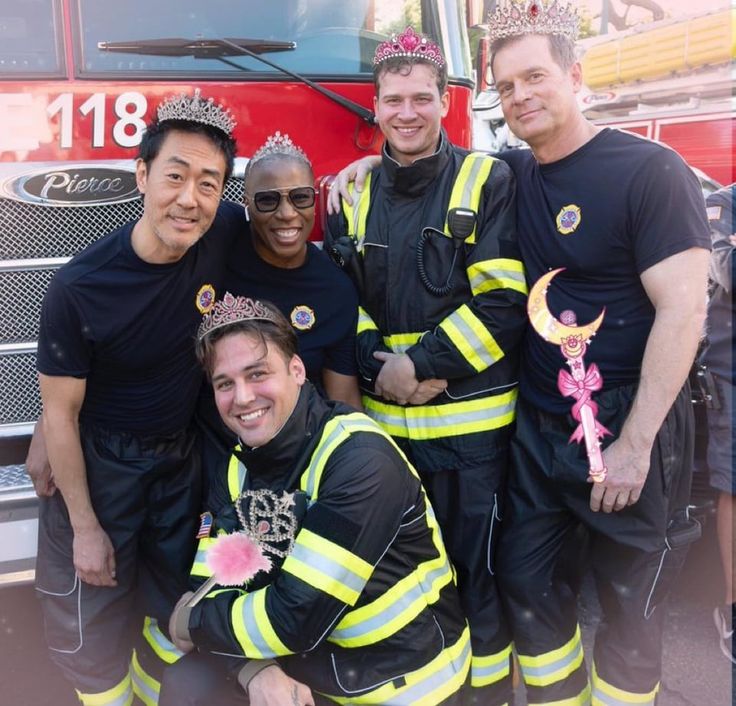
9-1-1: Nashville breaks a seven-year streak for the popular first-responder franchise. The second 9-1-1 spinoff, following the end of 9-1-1: Lone Star earlier this year, garnered a lot of attention for the question of where the new series would take place. The procedural drama, created by Ryan Murphy, Brad Falchuk, and Tim Minear, gets a lot of mileage out of its location by linking it to the type of emergencies that the main characters respond to.
But as casting and character details have started to emerge, there’s a bigger distinguishing factor than just the spinoff’s Nashville focus. 9-1-1: Nashville will debut on ABC later this year and, although an exact premiere date hasn’t been revealed just yet, executives have confirmed that Nashville and the main 9-1-1 series will crossover. That likely means, as the 118 attempt to move forward after the death of Captain Bobby Nash, they’ll rub shoulders with the spinoff’s new leads — NCIS: Los Angeles star Chris O’Donnell and Grey’s Anatomy alum Jessica Capshaw.
When Ryan Murphy announces a new show, you listen. But when he launches a new spin-off in the wildly successful 9-1-1 universe—and it breaks a 7-year-old trend? You pay close attention.
9-1-1: Nashville isn’t just another city in the franchise. It’s a seismic shift. This bold new direction is already generating buzz online, sending ripples through fan communities and sparking fresh conversations about what comes next. Let’s dive deep into what sets this series apart, why Nashville was the chosen city, and what this move means for the future of Murphy’s first-responder empire.
The Rise of the 9-1-1 Universe
A Quick Recap of the Franchise’s Evolution
The 9-1-1 franchise began in 2018 with a powerful Los Angeles-based drama that took emergency response to cinematic heights. With Angela Bassett leading the charge, it captivated viewers with emotional, high-stakes storytelling.
Then came 9-1-1: Lone Star in 2020, giving Austin its spotlight. Two cities. Two tones. Still very much in Murphy’s dramatic wheelhouse. But both followed a familiar pattern: urban chaos, larger-than-life disasters, and emotionally layered characters.
So, What Changed in 2025?
Enter: Nashville. A southern city known more for country music than catastrophe, and yet—Murphy chose it. This was the first real curveball in the 9-1-1 playbook.
Why Nashville?
The Cultural Pulse of Music City
Nashville isn’t just country songs and cowboy boots. It’s a city with grit, heart, and an undercurrent of drama that’s rarely explored on primetime TV. By spotlighting Nashville’s unique blend of southern hospitality and modern chaos, Murphy is bringing fresh narrative textures to the franchise.
Breaking the Urban Mold
LA and Austin have that big-city energy. Nashville, on the other hand, feels more personal—less skyscrapers, more small-town intensity. That contrast matters. It brings new storytelling opportunities, tighter community stories, and richer character dynamics.
The Characters Set It Apart
A More Intimate First-Responder Family
Instead of focusing on over-the-top heroics, 9-1-1: Nashville zooms in on personal stakes—trauma, recovery, and community. Expect deeper emotional arcs, slower burns, and a whole lot more character depth.
Meet the Cast (Without Spoilers)
The new faces in Nashville are fresher, younger, and more diverse. There’s a clear effort to mix generational perspectives, racial backgrounds, and even musical talent—yes, there’s a subplot involving a first responder moonlighting as a singer.
Breaking the Franchise Formula
From Mega-Disasters to Micro-Realities
Remember those rollercoaster episodes where LA collapsed or Austin froze over? Nashville scales things down. That doesn’t mean less excitement—it just means more realism. The emergencies feel lived-in, not cinematic.
Trauma Is the New Main Character
Ryan Murphy is leaning into emotional realism. We’re talking PTSD, familial dysfunction, addiction recovery—and not just for side characters. The trauma is layered and central to the story.
The Genius of Ryan Murphy’s Pivot
High Drama Meets Southern Grit
Murphy has always thrived on tone, and this new southern drama allows him to mix melodrama with realism in ways we haven’t seen in the franchise before. It’s quieter, sure. But it’s also bolder.
A Risk That Pays Off
Taking a more grounded approach in a world of mega-spectacle might seem risky. But early reactions prove it’s a risk worth taking.
Audience Reactions Are Wildly Positive
Social Media’s Verdict?
X (formerly Twitter), TikTok, and Reddit have exploded with hot takes—and most of them are glowing. Fans love the slower pace, the emotional punch, and the new setting.
Critics Are Praising the Shift
Entertainment outlets like Variety and The Hollywood Reporter are calling it the “most emotionally resonant 9-1-1 yet.” That’s a big win for a franchise that could’ve gone stale.
Representation in 9-1-1: Nashville
LGBTQ+ and Racial Inclusion
Nashville features a queer paramedic, a Black fire chief, and Latino EMTs, reflecting a real-world Nashville that often gets overlooked. Representation isn’t just a checkbox—it’s central to the storytelling.
Music Is More Than Just a Backdrop
Country Tunes and Firetrucks?
You wouldn’t expect banjos with your blaze alarms, but Nashville blends emergency sirens with heartfelt acoustic ballads. The music isn’t gimmicky—it’s character-driven, symbolic, and raw.

What’s Next for the Franchise?
Could More Regional Spin-Offs Follow?
Will we see 9-1-1: Chicago or 9-1-1: Miami next? Nashville might be the prototype for a new kind of franchise—one that gets smaller, not bigger.
A New Standard for Emotional TV
If Nashville succeeds—and it already looks like it will—other shows will take notes. This could mark a shift in how we tell stories about heroes.
Final Thoughts—Why This Matters
This isn’t just another spin-off. It’s a statement. Ryan Murphy is showing that real heroism doesn’t always need fireworks. Sometimes, it needs a broken guitar string, a sleepless night, or a heart-to-heart on a Nashville porch.